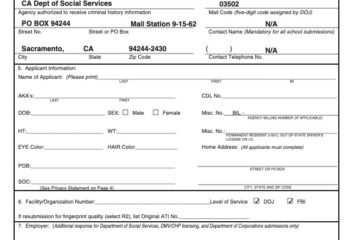Notarization is not just a formality but a crucial step in validating and authenticating documents when dealing with international transactions, whether for business, legal, or personal reasons. Many countries, such as the United States, Canada, and the United Kingdom, require certain documents notarized to ensure their legitimacy and recognition abroad. But not all documents require notarization for international use—understanding which documents do and why can help you navigate the process more effectively. This blog will explore what documents typically require notarization for global use and why notarization is essential.
What Does Notarization Mean for International Use?
Notarization is the process by which a notary public, a legally authorized individual, validates the authenticity of a document. This includes verifying the identity of the person signing the document and ensuring that the document was signed voluntarily and without fraud. When documents are intended for use in a foreign country, notarization is required to confirm that they are authentic and meet the legal standards of the foreign jurisdiction.
Notarized documents play a crucial role in preventing fraud, establishing credibility, and ensuring the legitimacy of agreements. The requirement for notarization can vary by country and document type. Depending on the country’s legal requirements, a notarized document may need additional authentication, such as an apostille or embassy legalization.
1. Powers of Attorney
A power of attorney (POA) is a legal document in which one person authorizes another to act on their behalf in various matters such as financial decisions, medical care, or business transactions. When this document is being used in another country, notarization is often required to ensure that the person granting the authority (the principal) is doing so willingly and with full understanding.
A notarized POA confirms that the document was properly executed and signed for international use. depending on whether the country is a signatory to the Hague Convention, some countries may also require an apostille or embassy legalization and notarization,
2. Affidavits and Sworn Statements
Affidavits are written statements made under oath, affirming that the information contained in the document is true. Sworn statements are similar but may not always require an oath, depending on the legal system. Both types of documents often need to be notarized, especially if they are being presented for use in a foreign country.
For example, affidavits of support (used in immigration cases) or sworn statements in court cases may need notarization to confirm their authenticity. Notarization helps prevent fraudulent claims or misrepresentations and ensures the statement is legally binding.
3. Business Documents and Contracts
Business transactions, such as forming international partnerships, establishing joint ventures, or securing financing, often involve the exchange of documents like contracts, agreements, or corporate resolutions. Notarization of business documents is not just a formality but a common practice in international transactions because it provides an added layer of credibility and helps prevent disputes regarding the authenticity of the documents.
In particular, contracts between parties from different countries may require notarization to ensure both parties understand and agree to the terms. In some countries, notarized business documents may need to be apostilled or legalized by the foreign embassy or consulate.
4. Real Estate Documents
Real estate transactions, particularly those involving the purchase or sale of property abroad, require notarized documents to ensure they are legally binding and recognized by foreign authorities. These documents can include property deeds, mortgages, or contracts related to the sale or lease of property.
Notarization helps confirm that the parties involved in the transaction have signed the documents voluntarily and with a full understanding of the legal implications. Depending on the country, real estate documents may require additional authentication through an apostille or embassy legalization.
5. Immigration Documents
If you are applying for a visa, residency, or citizenship in a foreign country, you may need to submit notarized documents as part of your application. These documents can include birth certificates, marriage certificates, divorce decrees, financial statements, or proof of legal identity. Notarization ensures that the documents are authentic and that the information provided is accurate.
Some countries may also require additional authentication, such as an apostille or consular legalization, particularly if the documents are being submitted to government authorities as part of an immigration process.
6. Wills and Testaments
A will or testament is a document that outlines how a person’s assets and belongings should be distributed after their death. Notarization is often required to ensure validity if the will is used in another country or involves holdings in multiple countries. Notarization helps prevent challenges to the will by confirming that the testator (the person making the will) signed the document in the presence of a legally authorized individual.
In some jurisdictions, notarized wills may also require additional steps, such as having the document authenticated by the local embassy or consulate or obtaining an apostille to ensure its recognition abroad.
7. Adoption Documents
When adopting a child internationally, various documents are typically required, including adoption papers, medical records, and birth certificates. These documents must often be notarized to ensure their authenticity. Notarization of adoption documents helps foreign authorities verify that the information provided is legitimate. In many cases, these documents may also require an apostille or embassy legalization, depending on the country’s specific requirements.
8. Diplomas and Academic Transcripts
If you plan to work, study, or participate in academic exchanges in a foreign country, you may need to have your diplomas, academic transcripts, or other educational documents notarized. Notarization ensures that these documents are legitimate and can be used for official purposes, such as applying for jobs or enrolling in educational programs abroad.
Sometimes, these documents may need to be apostilled or legalized, especially if you submit them to government agencies, universities, or employers in a foreign country.
9. Medical Records and Health Certificates
In certain situations, you may need to submit medical records or health certificates to foreign authorities for various reasons, such as immigration, work visas, or travel purposes. These documents often require notarization to confirm their authenticity. Notarization helps ensure that the health information provided is accurate and meets the legal standards of the receiving country.
For example, if you are applying for a visa to study abroad, you may need a notarized health certificate showing that you are free from communicable diseases. In such cases, these documents may also require apostille or consular legalization.
10. Personal Identification Documents
Personal identification documents such as birth certificates, marriage certificates, divorce decrees, and death certificates are often required for international use, particularly for legal, immigration, or family purposes. These documents must typically be notarized to confirm their authenticity.
For example, suppose you are applying for a visa, submitting adoption paperwork, or handling estate matters across borders. Notarized personal documents will likely be required to ensure foreign authorities legally recognize the documents.
Conclusion
Notarization plays a key role in ensuring that important documents are recognized internationally. Whether you are engaged in business transactions, dealing with legal matters, applying for immigration, or handling personal affairs, notarized documents help validate their authenticity and increase their acceptance in foreign countries. Always verify the notarization requirements of the country where your documents will be used to ensure you comply with local regulations. Working with a professional mobile notary service can streamline the process and ensure your documents are properly notarized and ready for international use.
Also Read: Understanding Apostille vs. Notarization: Which One Do You Need?




0 Comments